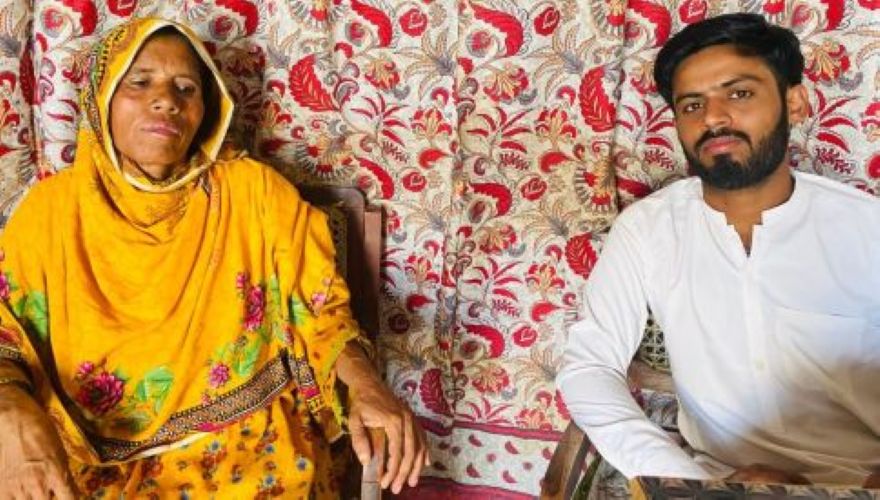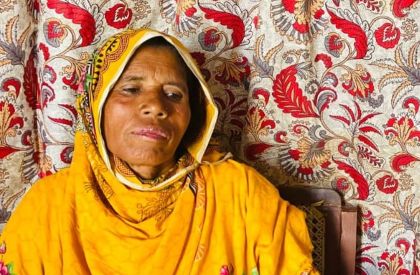Hashi – A Bangladeshi Woman’s Ordeal

By Farooq Sargani
SEEHAR STATION: This is not an ordinary story; it carries deep sorrow, disappointment, and the pain of a forced departure from one’s motherland. During the interview, my heart wrenched and tears streamed down my face. Yet, with a heavy heart, I persisted, determined to highlight the courage and contribution of this brave woman.
It was the year 1992. Hashi was abducted while on her way to school to collect her matriculation completion certificate. No one knew that she would never return home safely.
A few days later, brokers smuggled her by ship from Bangladesh to India, and from there to Karachi, Pakistan. On 15 March 1992, she arrived at Landhi area of, Karachi, the capital city of Sindh province of Pakistan. Many people came to see her, but one man, after paying 50,000 rupees, took her away to his native village, Seehar Station, near Larkana city.
There, she faced a language barrier. Her mother tongue was Bengali, and she could read and write only in that language. She recalled, “I learned Siraiki language by translating from Bengali, but until then, I was like a dumb person.”
Desperate to return to Bangladesh, she tried writing letters to her family. But her efforts were in vain—sometimes the letters were stuck at the post office, and whenever a reply did come, her gambler husband tore it into pieces.
In sorrow, Hashi remembered how her husband never gave her a single penny. To feed her family, she began working in the agricultural fields, braving the scorching heat and bitter cold. At times, she even slept on an empty stomach. Yet, she worked day and night to provide for her children.
Eventually, she gave birth to four daughters. Her husband remained jobless and addicted to gambling. Life became even tougher. Often, after finishing her work in the fields, she would receive a simple meal. She would take that food home and feed her children.
After 20 years, one of her letters finally reached the right address—her brother Muhammad Khukan in Gaibandha District, Bangladesh. Overjoyed, her brother immediately sent her a visa. But even then, troubles surrounded her. Her passport was still under process, and she had to travel by van from Seehar Station to Larkana, nearly fifty kilometers away, often without money. Still, she never lost hope.

At last, her dream came true—she returned home to Bangladesh. But upon arrival, she learned the heartbreaking news that her father had passed away. Neighbors and relatives came to see her. Many wept upon seeing her condition. She was no longer the lively Hashi they remembered.
She visited her old school, where she came across Asghar, a former classmate who was now a teacher there. She greeted him, saying, “How are you? I am Hashi.” But Asghar did not recognize her until she shared her calamitous journey. Tears welled in his eyes as he listened.
Hashi remembered her school days fondly, when she used to participate in every activity with enthusiasm. But time had changed, and all that remained were memories.
Six months later, for the sake of her children, she was repatriated to Pakistan. Though her family in Bangladesh pleaded with her to stay, her heart was tied to her daughters. She had promised them she would return.
Today, Hashi still wanders the dusty streets of Seehar Station, deprived of life’s basic necessities. She works for meager wages, barely enough to survive.
In short, through the darkest chapters of her life, Hashi carried on her shoulders the heavy burden of her children’s care, in her heart the ache of endless sorrows, and in her weary body the sacrifices of a mother who gave everything.




